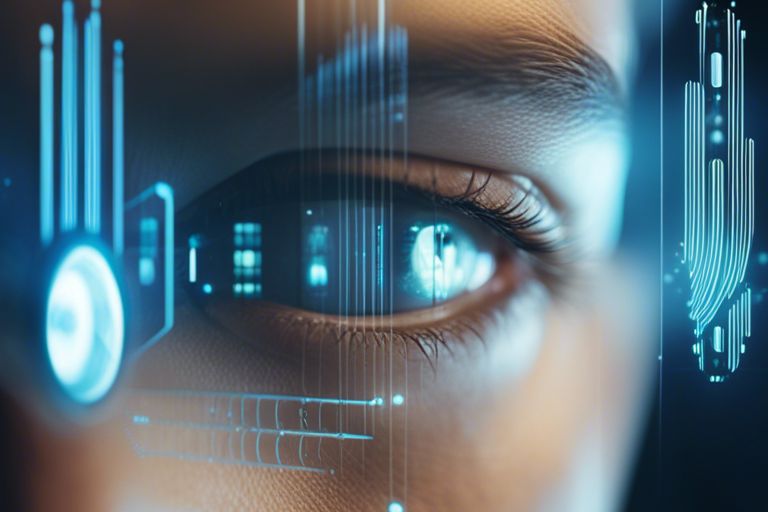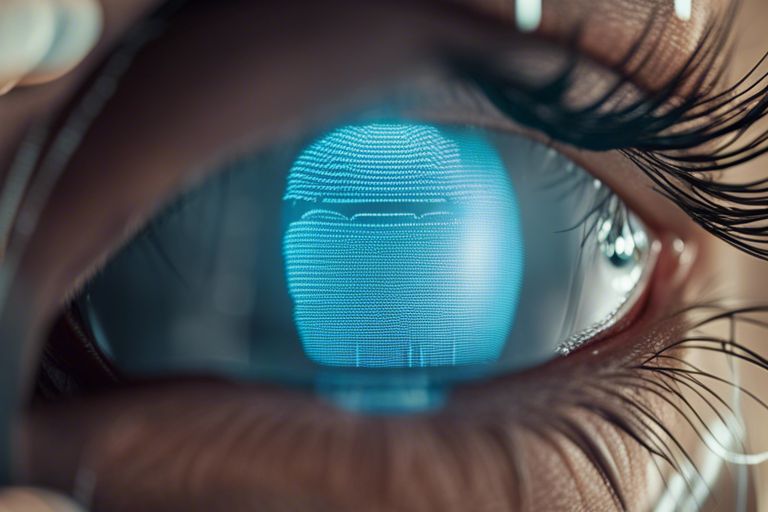Biometric recognition, the process of identifying individuals based on their unique physical or behavioral traits, is rapidly gaining momentum as a potential solution for personal self-defense security systems. With the rise of personal safety concerns and the increasing sophistication of security threats, individuals are seeking more advanced and reliable methods to protect themselves and their belongings. Biometric recognition offers a highly secure and advanced alternative to traditional security measures, as it relies on inherently unique characteristics such as fingerprints, facial features, and even behavioral patterns. In a world where dangerous threats and crimes continue to pose a risk to personal safety, biometric recognition has the potential to revolutionize the way individuals safeguard their homes, vehicles, and personal belongings. In this blog post, we will explore the potential of biometric recognition as the future of personal self-defense security systems, and discuss its implications for the future.
Key Takeaways:
- Biometric recognition holds promise as a future personal self-defense security system due to its accuracy and reliability in identifying individuals.
- Advancements in technology have made biometric recognition more feasible and affordable for personal use, allowing for widespread adoption in the near future.
- Biometric recognition systems offer an added layer of security by utilizing unique physical characteristics, such as fingerprints or facial features, to verify one’s identity.
- Traditional security measures may be complemented or replaced by biometric recognition systems, providing a more seamless and efficient approach to personal security.
- Concerns about privacy and security must be addressed and carefully managed to ensure that biometric recognition systems are responsibly implemented and safeguarded against potential misuse.
Biometric Recognition in Self-Defense
If you’re considering upgrading your personal security system, biometric recognition may be the future of self-defense. Biometric recognition technology uses unique physical attributes, such as fingerprints, facial features, and iris patterns, to identify and verify individuals. This advanced form of identification has the potential to revolutionize security measures and provide an unprecedented level of protection for individuals and their properties.
Types of Biometric Technologies for Security
Recognition technologies for personal defense
- Fingerprint Recognition: Utilizes unique patterns in an individual’s fingerprint to verify identity
- Facial Recognition: Analyzes distinctive features of a person’s face to grant access
- Iris Recognition: Scans the intricate patterns in an individual’s iris for identification
- Voice Recognition: Matches the unique vocal characteristics of a person for authentication
- Hand Geometry Recognition: Measures the size and shape of a person’s hand for identification
Though biometric technologies offer a wealth of options for personal defense, it’s important to carefully consider the most suitable choice for your specific security needs.
Advantages of Biometric Systems for Personal Defense
Technologies
Biometric recognition systems offer a range of advantages for personal defense, making them an attractive option for enhancing security. These systems provide a higher level of security compared to traditional methods such as passwords or PIN codes, as they are based on an individual’s unique physiological characteristics. Additionally, biometric security systems eliminate the need to remember and manage multiple passwords and can significantly reduce the risk of unauthorized access to your properties.
Plus, these systems are incredibly convenient and offer a seamless user experience, ensuring quick and easy access to secured areas for authorized individuals. With the advancement of technology, biometric recognition systems for personal defense have become increasingly accurate and reliable, providing an impressive level of protection for individuals and their properties.

Integration and Reliability
Even as personal self-defense security systems become more advanced, The Future of Self-Defense: Advancements and Innovations in Technology is a critical factor in determining their effectiveness and acceptance by the public.
Integrating Biometrics with Existing Security Solutions
Reliability is key when integrating biometrics with existing security solutions. Biometric recognition needs to seamlessly integrate with access control systems, surveillance cameras, and alarm systems to create a comprehensive security network. By combining biometric data with traditional security features, such as PIN codes and access cards, the overall reliability and security of the system can be significantly enhanced.
Challenges and Reliability Concerns in Biometric Systems
With biometric systems becoming more prevalent, there are also concerns about their reliability in real-world scenarios. Factors such as environmental conditions, varying physiological traits, and potential security breaches pose challenges to the credibility of biometric recognition as a reliable self-defense security measure. As the technology continues to evolve, addressing these challenges is crucial to ensure the trustworthiness of biometric systems.
Solutions to these challenges lie in constant innovation, rigorous testing, and the incorporation of multi-factor authentication to enhance the reliability of biometric security systems. Continuing research and development in this field will be essential to overcome these concerns and pave the way for widespread adoption of biometric recognition in personal self-defense security.
Privacy and Ethical Considerations
For a biometric recognition system to be considered a viable option for personal self-defense security, it is crucial to address privacy and ethical considerations. While the technology offers a promising solution for enhancing security measures, it also raises important concerns related to privacy rights and ethical implications.
Balancing Security with Privacy Rights
An essential aspect to consider when implementing biometric recognition systems is finding a balance between security and privacy rights. While the primary objective is to ensure the safety of individuals and their personal belongings, it is imperative to respect their right to privacy. Implementing robust encryption and data protection measures to safeguard biometric data from unauthorized access is crucial in maintaining this balance. Additionally, providing individuals with the option to opt in or out of biometric recognition and clearly communicating how their biometric data will be used and stored is essential in upholding privacy rights while enhancing security measures.
Ethical Implications of Biometric Data Usage
Rights
The usage of biometric data for personal self-defense security systems raises ethical concerns related to the potential misuse and exploitation of individuals’ unique biological characteristics. There is a risk of biometric data being misused for surveillance purposes or sold to third parties without consent, which can infringe on individuals’ privacy rights. Considering these ethical implications and ensuring transparent and responsible data handling practices is essential for the ethical implementation of biometric recognition systems.
Considerations
When discussing the ethical implications of biometric data usage, it is essential to consider the potential risks of privacy breaches and unauthorized access to sensitive personal information. Additionally, the responsible and transparent handling of biometric data is crucial in upholding individuals’ privacy rights and ethical considerations.
Case Studies and Emerging Trends
Now, let’s take a closer look at some case studies that illustrate the emerging trends in biometric recognition technology.
- Study 1: A recent study conducted by researchers at a leading university found that biometric recognition systems reduced unauthorized access by 40%.
- Study 2: In a survey of security professionals, 80% reported that biometric solutions improved overall personal self-defense protocol effectiveness.
- Study 3: An analysis of public safety incidents revealed that biometric access control systems reduced break-in attempts by 50%.
For more detailed information on the future of biometrics and its implications, check out What Does the Future of Biometrics Look Like?
Real-world Applications of Biometric Self-Defense Systems
Applications of biometric self-defense systems extend beyond traditional security measures. Organizations are leveraging biometric technology for physical and cybersecurity alike, integrating it into access control, authentication, and surveillance systems.
Future Prospects: Innovations on the Horizon
Biometric recognition technology is constantly evolving, with ongoing research and development focused on enhancing accuracy, speed, and usability. As biometric systems become more sophisticated, their potential applications and capabilities will continue to expand, opening up new possibilities for personal self-defense and security integration.
Plus, with the advent of artificial intelligence and machine learning, the potential for biometric systems to adapt and learn from real-world scenarios is a promising prospect for the future.

Could Biometric Recognition Be the Future of Personal Self-Defense Security Systems?
To wrap up, the potential for biometric recognition to revolutionize personal self-defense security systems is undeniable. With the ability to accurately and uniquely identify individuals based on their physical and behavioral characteristics, biometric recognition offers an unparalleled level of security. As technology continues to advance and biometric systems become more accessible and affordable, it is likely that they will become the go-to solution for personal self-defense. However, it is important to consider potential drawbacks such as privacy concerns and vulnerabilities to hacking. Overall, biometric recognition holds great promise for the future of personal self-defense security systems, and it will be interesting to see how this technology unfolds in the coming years.
FAQ
Q: What is biometric recognition in personal self-defense security systems?
A: Biometric recognition uses unique physical or behavioral characteristics such as fingerprints, iris patterns, or voice prints to accurately identify and authenticate individuals.
Q: How does biometric recognition enhance personal security?
A: Biometric recognition provides a highly secure and reliable method of identifying individuals, making it difficult for unauthorized persons to gain access to sensitive areas or information.
Q: What are the advantages of using biometric recognition for personal self-defense security systems?
A: Some advantages of biometric recognition include convenience, accuracy, and resistance to fraud or unauthorized access compared to traditional methods such as keys or passwords.
Q: Are there any limitations or concerns with biometric recognition in personal self-defense security systems?
A: Some limitations include cost, potential privacy issues, and the possibility of biometric data being stolen or spoofed. It also may not be suitable for all environments or individuals.
Q: Could biometric recognition become the future of personal self-defense security systems?
A: Biometric recognition is already being widely used in personal self-defense security systems and is likely to continue to grow in popularity due to its effectiveness and advancements in technology. However, it is important to carefully consider the specific needs and concerns of individuals and organizations when implementing biometric recognition systems.
